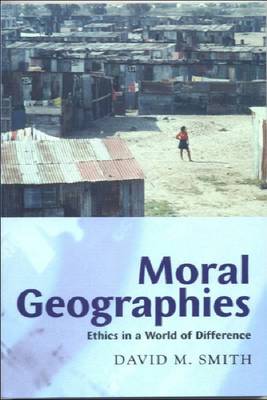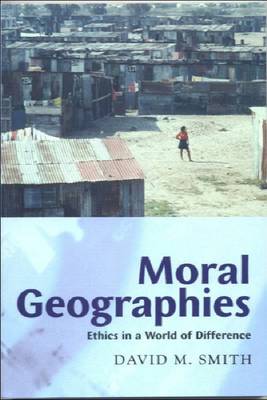
- Retrait gratuit dans votre magasin Club
- 7.000.000 titres dans notre catalogue
- Payer en toute sécurité
- Toujours un magasin près de chez vous
- Retrait gratuit dans votre magasin Club
- 7.000.0000 titres dans notre catalogue
- Payer en toute sécurité
- Toujours un magasin près de chez vous
47,45 €
+ 94 points
Description
This book explores the interface between geography, ethics and morality. It considers questions that have haunted the past, are subjects of controversy in the present, and which affect the future. Does distance diminish responsibility? Should we interfere with the lives of those we do not know? Is there a distinction between private and public space? Which values and morals, if any, are absolute, and which cultural, communal or personal? And are universal rights consistent with respect for difference? David Smith shows how these questions play themselves out in politics, planning, development, social and personal relations, the exploitation of resources, and competition for territory. After introducing the essential elements of moral philosophy from Plato to postmodernism, he examines the moral significance of concepts of landscape, location and place, proximity, distance and community, space and territory, justice, and nature. He is concerned above all with the morality people practice, to see how this varies according to geographical context, and to assess the inevitability of its outcomes. His argument is seamlessly interwoven with everyday observation and vividly described case studies: the latter include genocide and rescue during the Holocaust, the conflicts over space between Israeland Palestine and within Israel itself, and the social tensions and aspirations in post-apartheid South Africa. The meaning, possibility and limits of social justice lie at the heart of the book. That geographical context is vital to the understanding of moral practice and ethical theory is its central proposition. The book is clearly and engagingly written. The author has a student readership in mind, but his book will appeal widely to geographers and others involved in planning, development, politics, social theory, and the analysis of the contemporary world.
Spécifications
Parties prenantes
- Auteur(s) :
- Editeur:
Contenu
- Nombre de pages :
- 272
- Langue:
- Anglais
Caractéristiques
- EAN:
- 9780748612796
- Date de parution :
- 03-05-00
- Format:
- Livre broché
- Format numérique:
- Trade paperback (VS)
- Dimensions :
- 157 mm x 234 mm
- Poids :
- 390 g

Les avis
Nous publions uniquement les avis qui respectent les conditions requises. Consultez nos conditions pour les avis.






